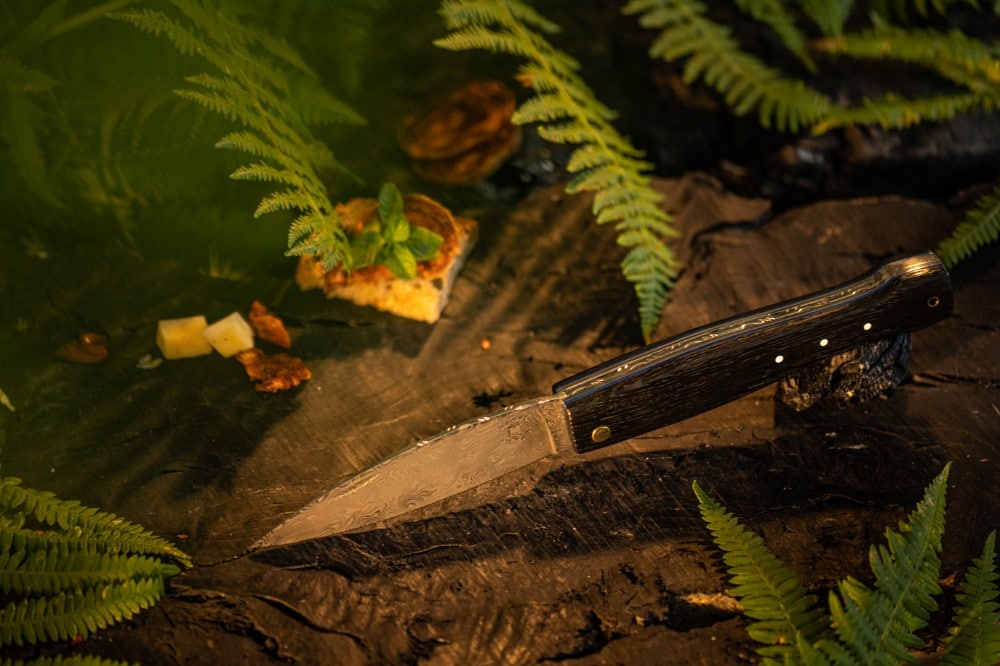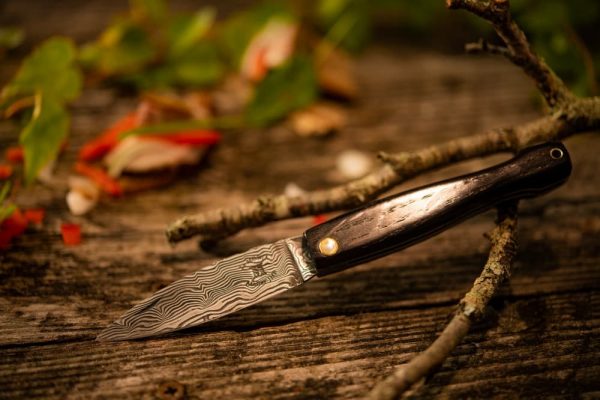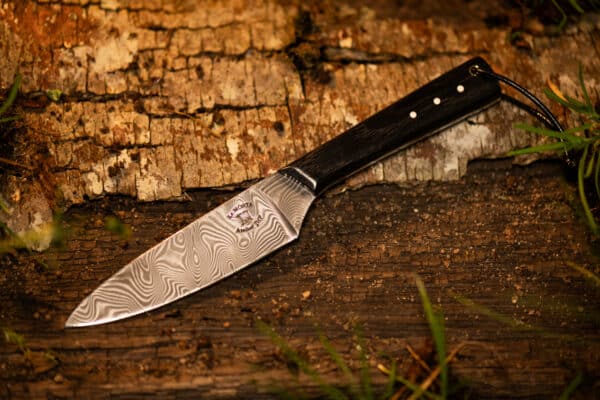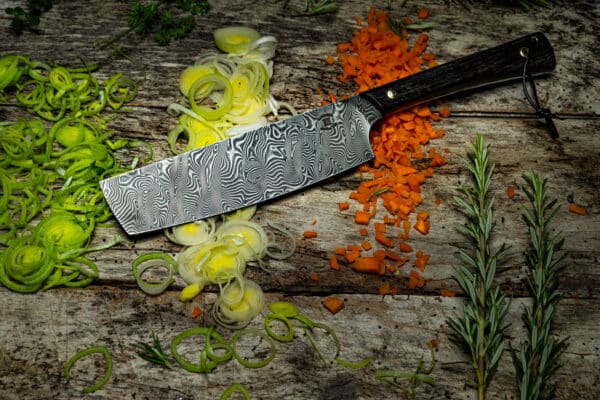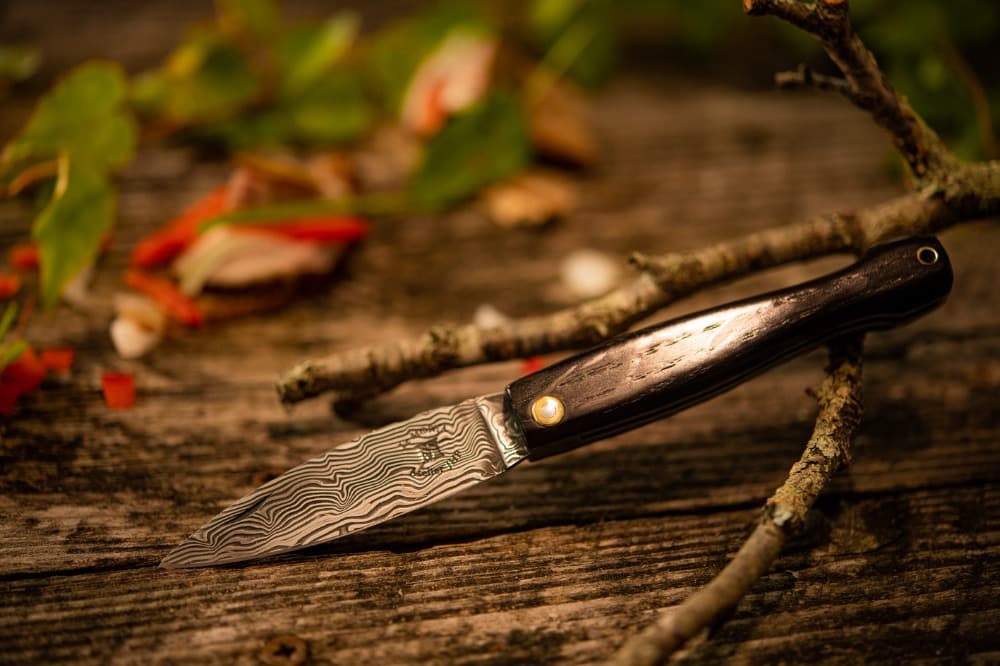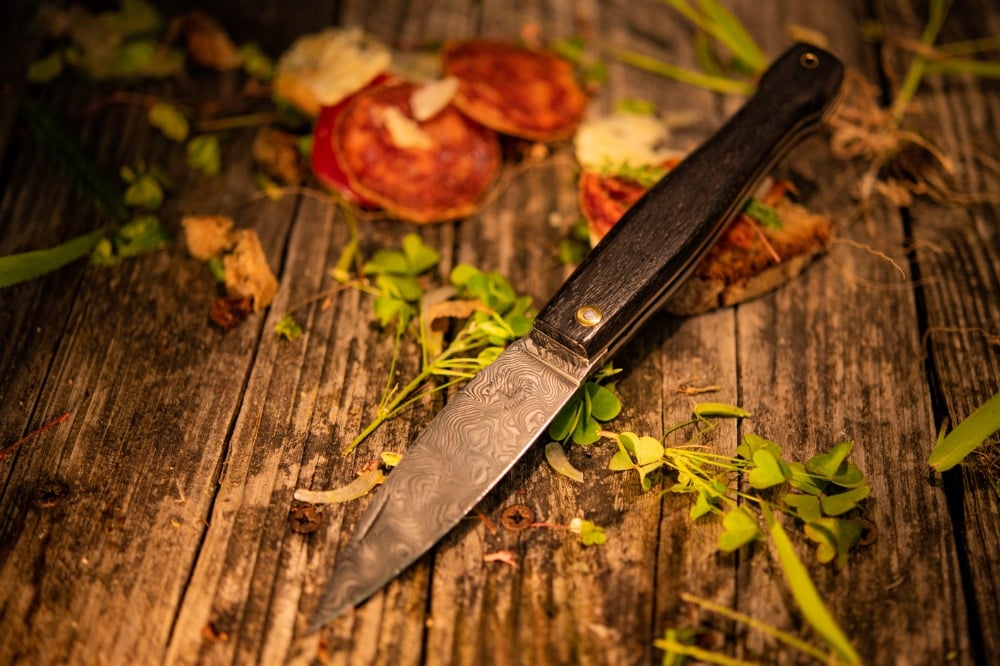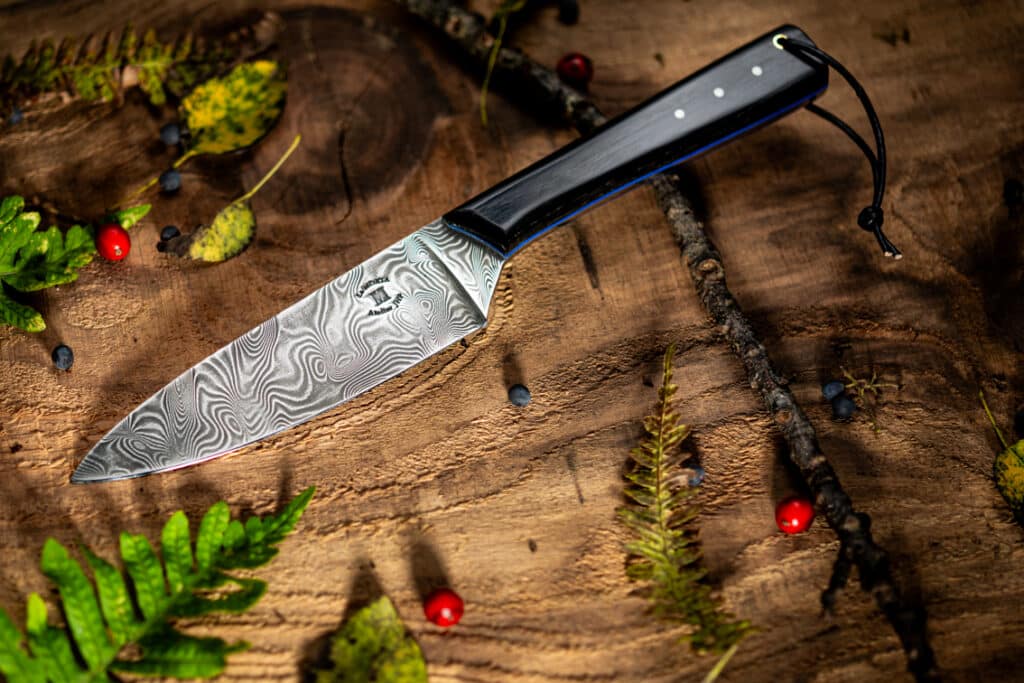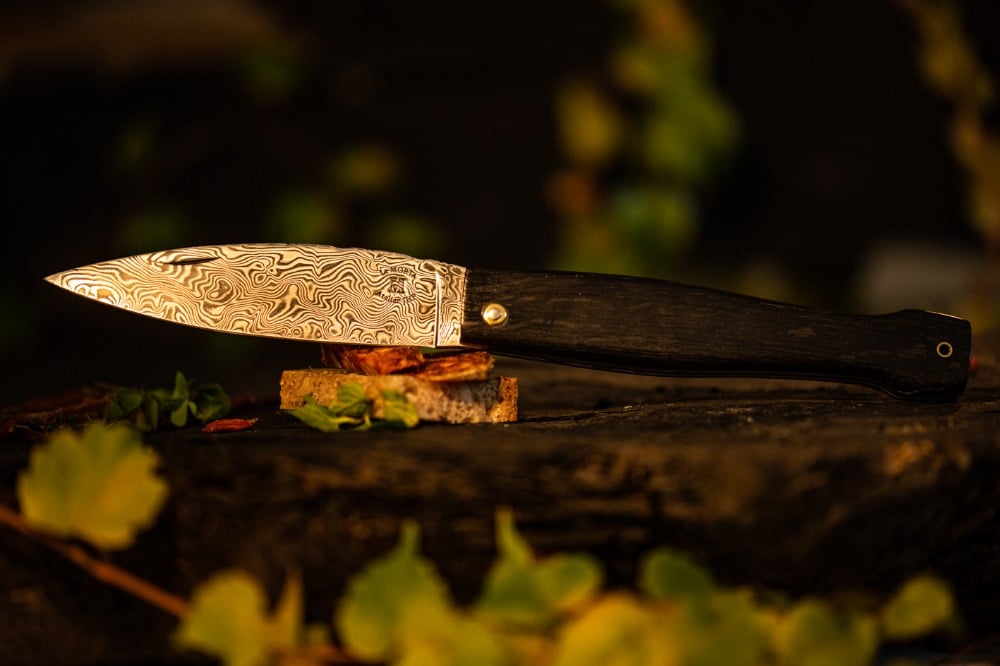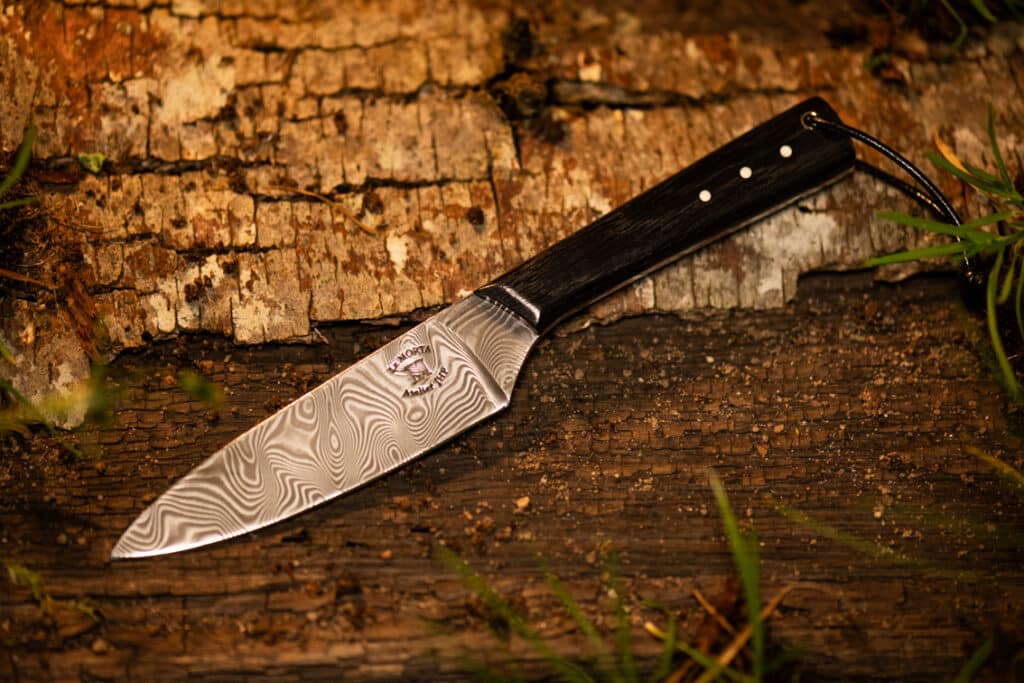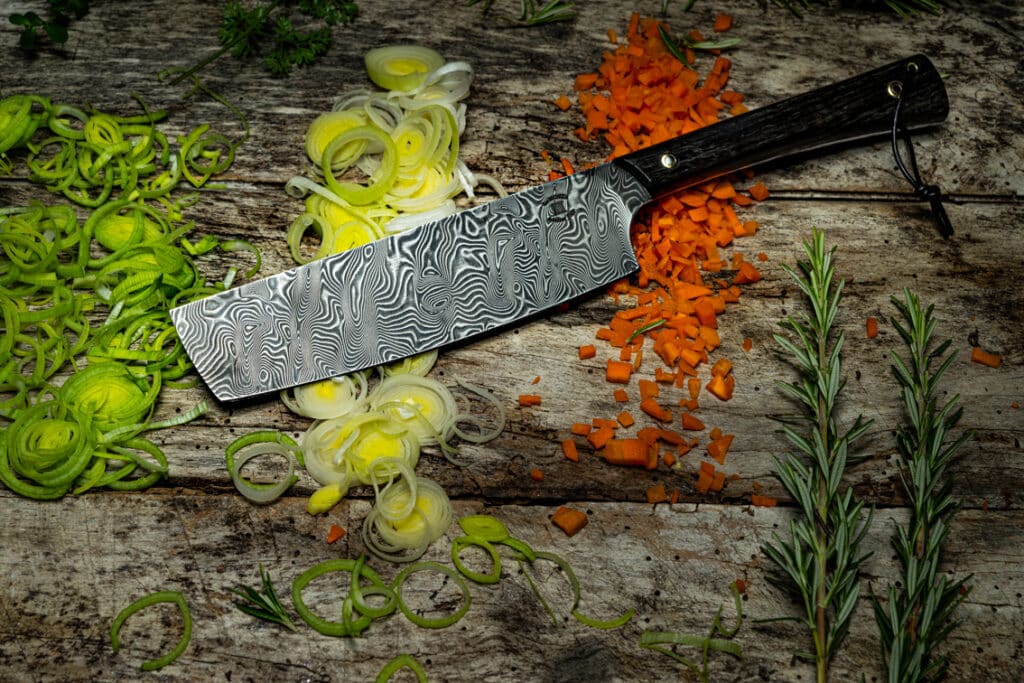Damascus steel, with its distinctive patterns and robustness, has become one of the most sought-after materials for quality knives. However, like any valuable item, a Damascus steel knife requires special care to preserve its beauty and functionality. In this article, we will explore what a Damascus steel knife is, why it’s crucial to clean it properly, and how Couteaux Morta, with its range of high-quality knives, fits into this tradition of excellence.
What is a Damascus steel knife?
Damascus steel is a unique type of steel, made up of several layers of different kinds of steel, primarily high-carbon steel, forged together to create a distinctive pattern.
This pattern, often likened to waves or marbling, is the result of an etching process that reveals the different layers of steel. Damascus steel knives are valued not only for their beauty but also for the quality of the blade.
Indeed, Damascus blades hold their edge well, making them perfect for a variety of uses, from kitchen knives to hunting knives.
Couteaux Morta offers a range of Damascus steel knives, combining aesthetics and performance, with blades made of high carbon steel that guarantee exceptional durability and efficiency.
Why is it crucial to clean a Damascus steel knife properly?
Damascus steel, especially high-carbon steel Damascus, is susceptible to rust if not properly maintained. Moisture, acidic substances, and even air can affect the quality of the Damascus steel, leading to rust or discoloration.
Moreover, not taking care of your Damascus pocket knife can result in a loss of the sharp edge, making the knife less effective when used. Additionally, improper care can fade the distinctive Damascus pattern, depriving the knife of its unique aesthetic.
That’s why it’s important to clean and care for a Damascus knife regularly, following best practices to ensure its longevity and preserve its beauty.
How to properly clean a Damascus steel knife?
Damascus steel, renowned for its beauty and durability, requires special care to maintain its shine and functionality. Here’s a detailed guide on cleaning and maintaining your Damascus steel knife.
Why is it essential to clean your knife immediately after use?
When you use your knife, food residues can accumulate on it. These residues, especially acidic substances like citrus fruits, can corrode Damascus steel. It’s therefore crucial to rinse your knife under warm water to remove these residues.
For a thorough cleaning, use a mild soap and gently scrub with a sponge or soft cloth, avoiding abrasive pads that can scratch the Damascus pattern.
How to dry your Damascus steel knife to prevent rust?
Moisture is the enemy of Damascus steel, especially if it’s of the high-carbon type. After cleaning, it’s imperative to dry the knife with a soft cloth. To ensure it’s completely dry, also let it air dry for a few minutes.
Why and how to oil your Damascus steel knife?
Oiling creates a protective barrier against moisture and prevents rust. For this, use a quality oil, like food-grade mineral oil, and apply a thin layer on the blade with a soft cloth.
If you use your knife frequently, consider oiling it at least once a week.
What are the tips for storing your Damascus steel knife?
Protecting your knife is essential to extend its lifespan. If your knife comes with a sheath, use it for storage. Otherwise, make sure to store it in a dry place, away from moisture. Drawers or areas close to water sources should be avoided.
5 additional tips for caring for your damascus steel knife
Beyond cleaning, oiling, and storing, there are other precautions to take to ensure the longevity of your Damascus steel knife. Here are some additional tips to keep your knife in pristine condition:
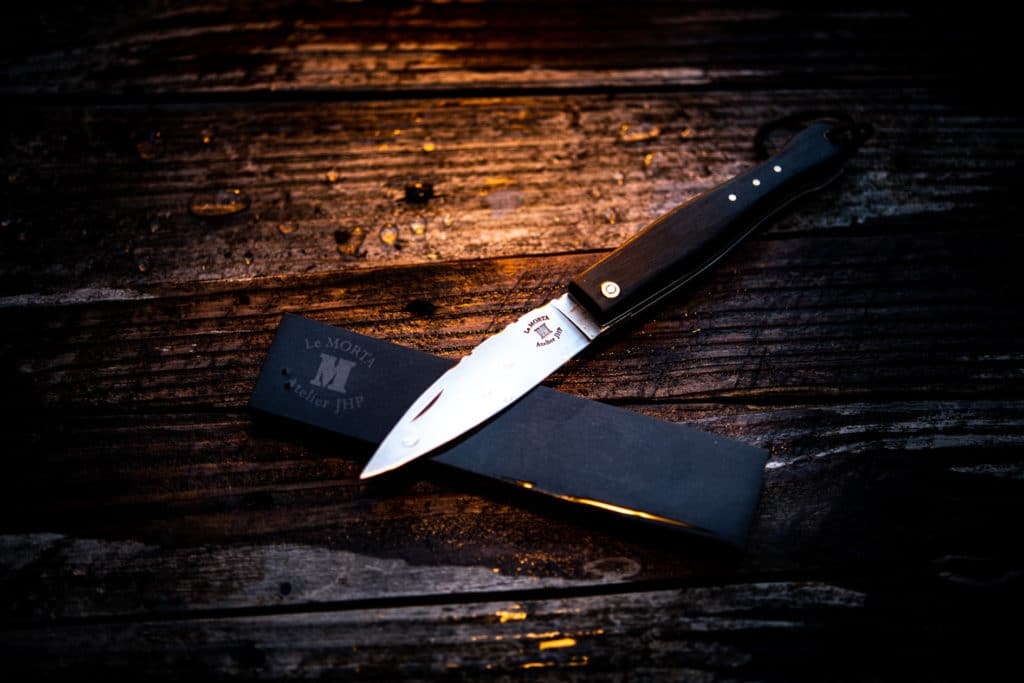
- Avoid the Dishwasher: Damascus steel knives should never be washed in a dishwasher. Harsh detergents and high temperatures can damage the blade and alter the Damascus pattern.
- Sharpening: A well-sharpened knife is not only more effective but also safer to use. Regularly sharpen your knife to maintain its edge. However, ensure you use a suitable sharpening stone to avoid damaging the blade.
- Handling: When using your knife, avoid hard surfaces that can dull the blade. Opt for wooden or soft plastic cutting boards to preserve your knife’s edge.
- Protection Against the Elements: If you plan to use your knife outdoors, such as for camping or hunting, ensure you protect it from the elements, like rain or dirt, by using a sheath or cover.
Conclusion
A Damascus steel knife is more than just a tool: it’s a work of art forged with care and precision. Like any work of art, it requires regular and attentive maintenance to preserve its beauty and functionality. By following the steps and tips mentioned above, you can ensure your knife remains as sharp and shiny as the day you bought it. At Couteaux Morta, we take pride in the quality of our knives, and we hope you will take the time to cherish and care for them.


